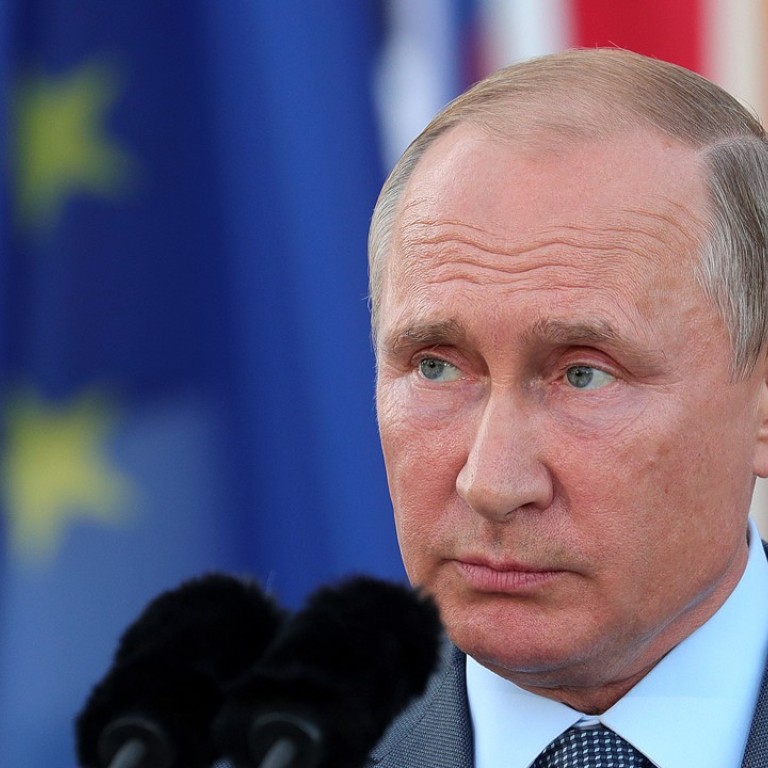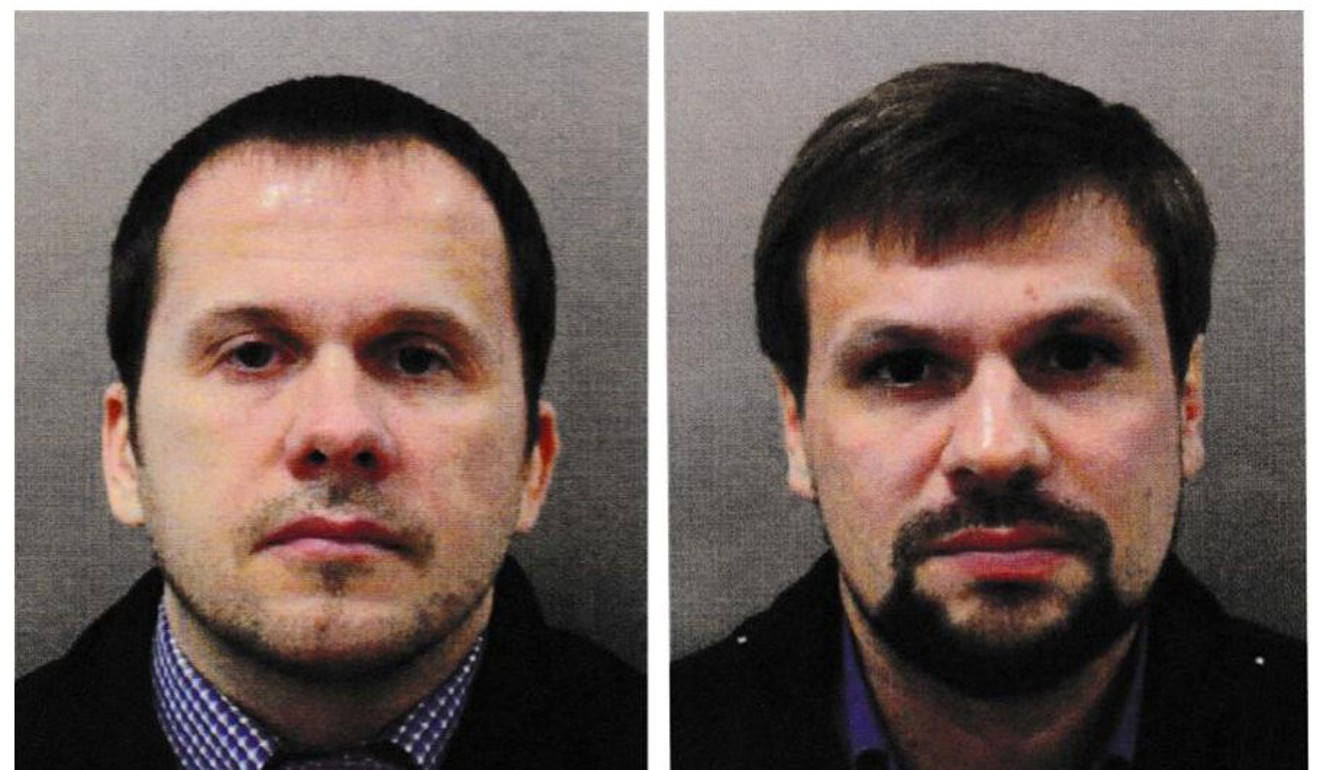
Vladimir Putin intervened to keep information on ‘freelance spies’ secret just days before Novichok attack in Britain
British PM said Alexander Petrov and Ruslan Boshirov, the two men named by Scotland Yard as suspects in the nerve agent attack, worked for the Russian military intelligence service, known as the GRU
Russian President Vladimir Putin signed a presidential decree making information about freelance agents who carry out work for Russia’s foreign intelligence agencies a state secret two days before Theresa May accused Russian secret service officers of carrying out the Skripal attack in Salisbury.
Previously, only information about regular personnel was considered a state secret, according to Russia’s state-run RIA Novosti news agency, which reported on Putin signing the order on Monday.
May said in the House of Commons on Wednesday that Alexander Petrov and Ruslan Boshirov, the two men named by Scotland Yard as suspects in the nerve agent attack, worked for the Russian military intelligence service, known as the GRU. British police believe the names are aliases, although the two men travelled on authentic Russian passports.

“Every Russian intelligence service makes uses of freelance agents in its operations, including those carried out overseas,” said Mark Galeotti, an expert on Russia’s intelligence and security agencies.
Although another spy agency, the SVR, is Russia’s official foreign intelligence service, the GRU is mandated to undertake operations around the world. Experts say its officers have been involved in the conflicts in Syria and Ukraine. The GRU was named in an 11-count indictment as part of the special counsel Robert Mueller’s investigation into alleged Russian meddling in the 2016 US presidential election.
I don’t think anyone can ever say that Mr Putin isn’t in control of his state
British Security Minister Ben Wallace said Putin bore ultimate responsibility for the poisoning.
“Ultimately he does in so far as he is the president of the Russian Federation and it is his government that controls, funds and directs the military intelligence, the GRU, via his ministry of defence,” Wallace told the BBC.
“I don’t think anyone can ever say that Mr Putin isn’t in control of his state ... And the GRU is without doubt not rogue. It is led, linked to both the senior members of the Russian general staff and the defence minister, and through that into the Kremlin and the president’s office.”
On Wednesday Russian officials dismissed May’s comments apportioning blame for the Skripal attack to the military spy agency.
“The names, just like the photos, published in the media say nothing to us,” said Maria Zakharova, a foreign ministry spokeswoman.
She urged Britain to “move away from public accusations towards practical cooperation between law enforcement agencies”. Zakharova also said Moscow had asked the British embassy to let it examine fingerprint records that Russian nationals have to provide to obtain a British visa.
Speaking before Scotland Yard’s statement, the Kremlin spokesman Dmitry Peskov said Moscow had repeatedly offered to cooperate with Britain in the Skripal investigation but had been met with “either refusal or silence”.
Britain charges two Russians over Novichok attack on former spy
Dmitry Gudkov, a Russian opposition politician, tweeted: “Meet Alexander Petrov and Ruslan Boshirov, suspected by Britain of the poisoning of the Skripals. Possible MPs in the next parliament!”
Gudkov’s tweet was an allusion to Andrei Lugovoi, the former KGB agent who was accused by Britain of murdering the Kremlin critic Alexander Litvinenko with polonium-210, a rare radioactive isotope, in London in 2006.
Lugovoi was elected to the Russian parliament in 2007 and now earns a reported £400,000 (US$515,000) a year as an MP. He was also awarded a state honour by Putin.

